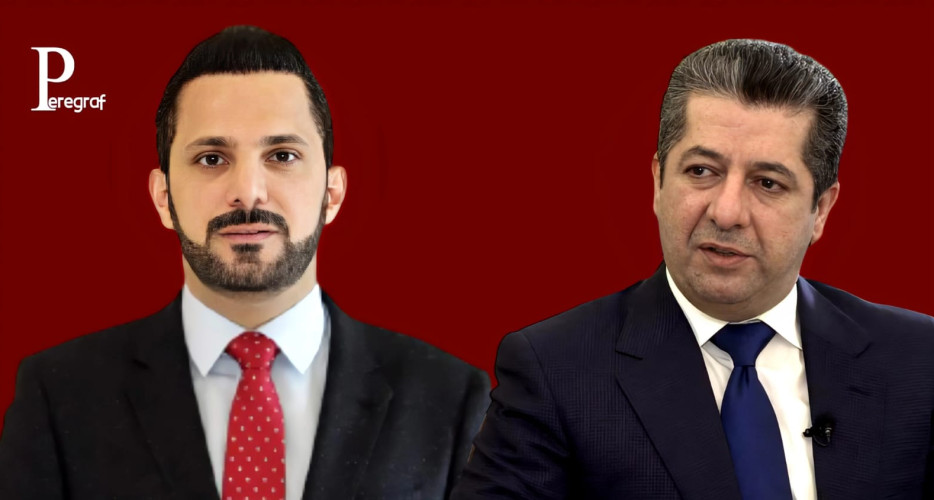
Peregraf – Amid rising speculation over the possible participation of the New Generation Movement (Naway Nwe) in forming the Kurdistan Region’s long-delayed tenth government cabinet with the Kurdistan Democratic Party (KDP), the movement has yet to make a final decision. It remains unclear whether New Generation intends to take part in the cabinet or use the negotiations as leverage against the Patriotic Union of Kurdistan (PUK), particularly as its president, Shaswar Abdulwahid, remains imprisoned in Sulaymaniyah. The movement insists his arrest is "political," a claim rejected by judicial and official authorities.
On Friday, the movement’s executive body met with the New Generation parliamentary faction. A statement from the meeting, shared with Peregraf, declared: "The New Generation faction in the Kurdistan Parliament has decided that whatever decision the movement and the movement's president make from prison, everyone will abide by it."
Information obtained by Peregraf indicates that New Generation has discussed the possibility of joining the tenth KRG cabinet, though no decision has been reached. The wording of today’s statement appears to hint at internal debate on the matter.
The discussions come at a time when New Generation’s vote share has sharply declined compared to the previous election cycle. The movement’s total votes across the Kurdistan Region dropped from 292,032 in 2024 to 123,376 in 2025-a decrease of 57.8%.
According to the official statement, the meeting focused on ways to address citizens’ concerns, including salaries, the financial crisis, and future mechanisms for monitoring government performance. "Furthermore, the meeting discussed a set of steps and measures that both New Generation factions in the Region and Baghdad will undertake, which includes a solid project for a radical solution to the salary and regional revenue issues, and the mechanism for monitoring that revenue in the budget law," the statement said.
A Government Deadlock Entering Its Second Year
More than a year after the October 20, 2024, Kurdistan parliamentary elections, the KDP and PUK have yet to reach an agreement on the distribution of senior posts, leaving the formation of the tenth KRG cabinet paralyzed. New Generation previously demanded either the premiership or all ministerial portfolios as conditions for joining the government. If its position softens and it sides with the KDP, the deadlock could be broken, enabling the KDP to form a government without the PUK or other parties.
Forming a cabinet requires a simple majority of 50% + 1, or 51 out of 100 parliamentary seats. The KDP holds 39 seats, with an additional three minority seats aligned with it. New Generation controls 15 seats, giving a combined total of 57 seats should both sides agree to a partnership.
Despite the parliament convening for its first session in early December 2024, it has been unable to meet again. The first session remains open because electing a parliamentary presidium requires a KDP–PUK agreement, which has not materialized.
Election Outcome and Political Landscape
The KDP emerged as the largest party in the October 2024 election with 39 seats. The PUK placed second with 23 seats. New Generation won 15 seats, the Kurdistan Islamic Union (KIU) secured 7, while the remaining seats were divided among smaller parties and minority representatives. Of the five minority quota seats, three align with the KDP and two with the PUK.
Seven opposition parties—excluding New Generation—reject the election results, calling them fraudulent and "designed." The Kurdistan Justice Group (Komal) has already declared a boycott of the entire parliamentary term. The Independent High Electoral Commission of Iraq has rejected allegations of fraud.
The widespread rejection of the election results has made government formation more difficult. While some opposition parties may be open to participating in the government, they face political pressure and public skepticism that complicate any move toward cooperation with the KDP.
Coalition Government Still the Likely Scenario
Despite their sharp differences, the most realistic path to forming the tenth cabinet remains a coalition between the KDP and PUK, who together-along with minority seats-hold 67 seats. The KDP’s 39 seats plus its three allied minority seats give it 42 seats, while the PUK’s 23 seats plus two minority seats total 25.
In practice, neither party can form a government alone. Most other parties either reject the election results, have declared themselves in opposition, or refuse to join the cabinet—except for New Generation, which has so far maintained firm conditions for participation. If New Generation shifts its stance, however, the balance of power could shift dramatically in favor of the KDP.
For now, the future of the tenth KRG cabinet remains uncertain, hinging not only on the KDP–PUK negotiations but increasingly on whether New Generation decides to break the political deadlock or leverage its position for greater influence.